The Microbiology Department, based at the Norfolk and Norwich University Hospital (NNUH) is part of the Eastern Pathology Alliance (EPA), a managed Pathology network involving laboratories at NNUH, the James Paget University Hospitals (JPUH) NHS Foundation Trust and the Queen Elizabeth Hospital (QEH) Kings Lynn. NNUH is the entity with legal responsibility for EPA. All Microbiology for the EPA is performed at the NNUH laboratory.
The department is accredited by the United Kingdom Accreditation Service (UKAS) to ISO 15189:2022.
The defined schedule of tests for which the laboratory is accredited can be found by clicking on the following link for schedule no:10296
The department has rapid access to national reference laboratory facilities through the UK Health Security Agency.
It also provides epidemiological data for the Communicable Disease Surveillance Centre in Colindale, and investigates outbreaks of infectious disease in support of the Consultant(s) in Communicable Disease Control at the Health Protection Unit.
The EPA Microbiology Department participates in National External Quality Assessment Schemes for bacteriology (including Mycobacteria), virology, serology, mycology and parasitology.
These department pages provide information about how users can access our services, who to contact for advice, which tests we perform, sample requirements, normal ranges and turnaround times. This information is accurate at time of issue and is reviewed and updated regularly to incorporate new developments.
For patients using this website please note that any information provided should not be used for self-diagnosis and should you have any concerns about your health please consult your GP.
If you find any errors within this document or would like to make any comments and/or suggestions for improvement, please contact Fiona Butcher, EPA Quality Manager on 01603 286900 or email [email protected].
Patient consent:
For most routine laboratory procedures, consent can be inferred when the patient presents himself or herself at a laboratory, or other suitable area, within a primary or secondary care setting, with a request form and willingly submits to the usual collecting procedure.
The laboratory infers informed consent has been obtained when samples are received. It is the responsibility of the clinician requesting the test to ensure that informed consent has been obtained.
This consent includes notification to third parties where required by law for example under the Health Protection (Notification) Regulations 2010: we are required to notify
the Health Protection (Notification) Regulations 2010: we are required to notify any infection of public health significance to local public health department as mandated by the regulation. Please ensure your patient is aware of this before submission of samples for testing.
Mon-Fri 09:00 – 17:00
Tel 01603 289847 (Ext: 5847)
Email: IP&[email protected]
Out of hours: First contact the relevant site practitioner.
Some specialised or low volume assays are referred to external laboratories for analysis; these may take up to 4 weeks for a result to become available. Please contact the laboratory if there is any urgency for these investigations. Information regarding specimen type for referred tests can be obtained by contacting the laboratory.
In line with accreditation requirements we endeavour to use accredited laboratories whenever possible. Further information on the reference laboratories we use can be obtained from the Individual Head of Section or from the Quality Manager if required
Authorised results are available on the ICE system for those sites with access, which is updated regularly throughout the day.
Written results are printed and reported every working day including Saturdays. Apart from negative urines, which can be reported after one working day, most bacterial culture results are reported after 2 – 5 days depending on the investigation.
Virology/Serology reporting depends on the investigation required, the frequency of testing and the urgency of the request.
Microbiology specimen container guide – Click here
Instructions for collection of microbiology specimens by patients – mid-stream urine – Click here
Instructions for collection of microbiology specimens by patients – Aptima genital swabs – Click here
Instructions for collection of microbiology specimens by patients – Aptima urines – Click here
Instructions for collection of microbiology specimens by patients – Faeces – Click here
Opening Times and Location
The lab operates outside the core hours but is routinely staffed and most responsive during the following times.
Core Hours:
Contact outside core office hours (including contacting the on-call BMS) should be made via switchboard.
During these times the Department’s telephones are fully manned and we will be able to respond to most requests.
Special or unusual tests may have to be analysed in batches and may not be available outside the laboratory’s core hours.
Outside the core working hours the on-call consultant can be reached via the hospital switchboard.
Specimens will be processed outside normal laboratory hours if requested and agreed criteria are satisfied. For more information click here.
Outside of the operational hours the examination of urgent specimens is undertaken by a team drawn from the most experienced Biomedical Scientists (BMS) in the department. A Medical Microbiologist and Consultant Virologist provide clinical cover at all times.
Specimens are accepted by arrangement with the on-call BMS who is reached via the NNUH switchboard for NNUH. With few exceptions specimens should be obtained before telephoning the BMS.
The specimen and request forms must be labelled clearly as URGENT and need a doctor’s name and bleep number to facilitate communication of initial results. Some requests however are only accepted after consultation with the on-call Medical Microbiologist/Virologist as appropriate and these are marked in the guide. Inappropriate requests will be deferred to the following morning.
Location
There is no facility for patients or other individuals to drop off mail or specimens at the laboratory location – please use Pathology on Level 1 East Block on the main NNUH site.
Phlebotomy, level 3 for blood tests.
EWM-D-001 Last updated 07/01/2025 (5)